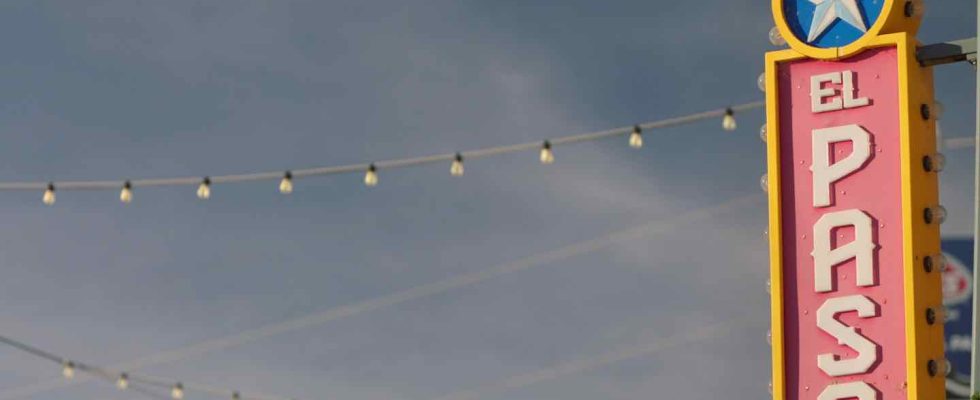Books & the Arts
/
March 27, 2024
A HBO documentary series helmed by Lawrence Wright unknowingly paints a picture of a state incapable of understanding how radically it has changed since its hard-right turn.
A distinguished writer sits in an East Texas diner, chatting with the director Richard Linklater: They shake hands with locals and talk about Linklater’s family, the prison system, and the curious “oppositional personality” of radicals. Now, the writer is speaking in a museum gallery, his hands folded in his lap, explaining Texas’s relationship to slavery: While images play of Black people in cotton fields, he says that the “labor-intensive process” created an “investment” in keeping slaves. Later, we see the same writer gazing at the commercial traffic flowing through the US-Mexico border, his graying eyebrows knitted in concern.
This man is Lawrence Wright, a longtime member of Texas’s liberal intelligentsia who was recently designated with the role of guiding voice. Billed as the gimlet-eyed chronicler of Texas’s influence, Wright translates and explains the complexities of the state for a national audience from his perch at The New Yorker. This role came to fruition with his 2018 book, God Save Texas, a semi-memoir that hopscotched through the state’s history and present (from Spanish colonization and slavery to NAFTA and Donald Trump) to discern what draws people here and what gets them to stay. “Texas is a part of almost everything in modern America,” he writes, “the South, the West, the Plains, Hispanic and immigrant communities, the border, the divide between rural areas and the cities—what happens here tends to disproportionately affect the rest of the nation.” It’s a big claim, but we like it that way. All politics is local, after all, but we’re Texas.
In Wright’s view, Texas has “nurtured an immature political culture that has done terrible damage to the state and to the nation.” Hard to argue with that. Ruled by Republicans since 1994, Texas has wiped away any remnants of the New Deal order, replacing it with a gutted social safety net, an expansive prison system, deepening inequality, and an ever-more-authoritarian conservatism. Riding a wave of anti-“globalist” populism while reaping the rewards of the international economy, the icons of Texas’s hard-right turn—people like Governor Greg Abbott and Senator Ted Cruz—have grown increasingly unrecognizable to the liberals who believed that Ann Richards, the state’s last Democratic governor, was a sign that the long arc of history bent toward progress. (Never mind that Richards vocally supported NAFTA and prison expansion.) The epitaph on her tombstone, which Wright visits at the end of his book, is from her 1991 inaugural address, which reads: “Today we have a vision of Texas where opportunity knows no race, no gender, no color—a glimpse of what can happen in government if we simply open the doors and let the people in.” Ms. Richards, I have some bad news.
How to make sense of a place so renowned for its callousness today, let alone make a home here? This isn’t a question with a single answer, particularly for liberals shocked by each new right-wing transgression. Books like God Save Texas are attempts to narrativize this sense of displacement, pinpointing what sin must be atoned for—or at least understood—before reconciliation and progress can begin again. Now, with the help of HBO, Wright—in his role as producer—has passed the question to three Texan directors: the Oscar-nominated Richard Linklater, the Emmy-nominated Alex Stapleton, and the indie documentarian Iliana Sosa, each of whom unearths some of the contradictions and myths foundational to their home state and their respective hometowns. They do so with Wright’s assistance; he appears on-screen with them at various times, asking questions and providing insights. The resulting three-episode docuseries, also called God Save Texas, is as wounded, inept, and passive as one might expect of the cultural representatives of an unmoored movement incapable of responding effectively to the deepening crises at the state’s core.
HBO originally greenlighted a project titled God Save Texas as a drama series in 2014, with the screenplay to be written by Wright based on his 2005 play Sonny’s Last Shot. Wright had toyed with the script’s basic shape since Richards was in office. It follows Sonny Lamb, a moderate Republican state representative who breaks with his party on questions of gay rights and campaign-finance reform. (Last year, a representative did break with her party on questions of LGBTQ+ rights—only it was a Democrat joining Republicans to limit access to trans healthcare.) Eventually, HBO fell out of love with the drama idea and fired the executive on the series, at which point Wright contemplated turning Sonny’s story into a “musical podcast.” Thankfully, that never came to pass. Instead, he wrote a novel—call it a fantasy—Mr. Texas, published last year.
Current Issue
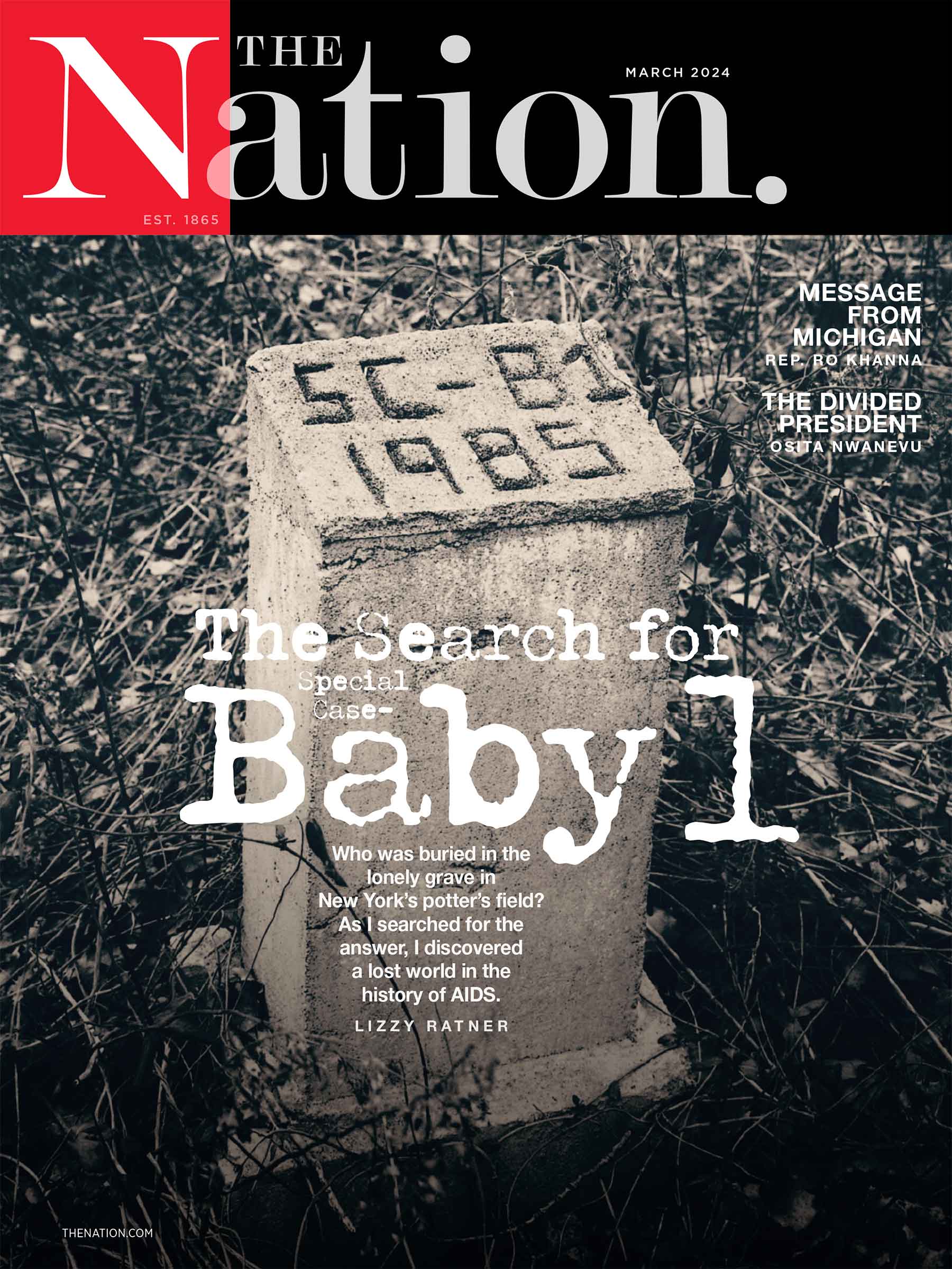
“This is what politics is really like,” Sonny thinks to himself in the novel. “It wasn’t about doing good, it was about being less awful.” Mr. Texas is billed as a comedy, but melancholy informs Sonny’s political maneuvering. As a moderate Republican, Sonny knows that “he would probably get primaried by one of the Nazi youth the dominionists were so capable of producing” and that he could “never pass for a Dem. Independents didn’t exist.” For Wright, therein lies the problem: no moderating force, no enlightened center! (For further evidence of this tendency of his, consider Wright’s recent chummy contribution to an article by Joe Nocera in The Free Press, Bari Weiss’s right-wing rag, where—from his vantage as a “Pulitzer Prize–winning” quoted source—he joins a chorus of wealthy conservatives to croak about the rise in “lawlessness” in Austin, apparently because police felt “alienated” by the protests in 2020 following George Floyd’s murder.) HBO may have discarded the fictional conceit in favor of a documentary when it revived the God Save Texas title, but the series inspired by Wright’s work is similarly blinkered: captured by a myth about the value of patient, incremental liberal politics that should be dead many times over by now but still lumbers on, permitting the right to determine the bounds of Texas liberalism. Indeed, for many longtime Texas liberals, politics froze in the 1990s. The rest of the world has drifted a long way since then, and it will continue to drift so long as we reach for old answers that have ceased to apply to what ails the state—and the country—today.
Huntsville is a small East Texas town with seven nearby prisons and thousands of prisoners, among whom nearly 1,000 death-row inmates have been murdered. It also inspired some of Linklater’s films—“mostly comedies,” he says somewhat shamefully. Many of his friends growing up here have either worked at a prison or spent time behind bars. Linklater excels at demonstrating the casual cruelty here, contrasting the prison town’s brutality with the rural community’s charm.
In one scene in Linklater’s episode of the HBO series, families wait under the shade of old oak trees for their loved ones to be released. One child among them, waiting for his dad, tells Linklater: “I haven’t really been able to play football with anybody, because, like, my grandma’s not really into football.” As one might expect from the director of Boyhood, Linklater has an eye for moments like these, imbued with emotion even if sometimes his subjects can’t quite find the words to express all they feel. With nearly double the running time of the other two episodes, Linklater has more expanse to let his subjects speak for themselves. We see college students walking to class while a prison siren blares, learn of inmates giving guards and their families free haircuts, and follow a corps of correction officers drawn from a growing community of African immigrants in search of stable jobs.
But when it comes time to think out loud about what changes to the prison system we in Texas might aspire to, Linklater approaches the task self-consciously. No documentary requires its makers to provide a comprehensive list of reforms, but when a solution is offered, it’s worth asking where it leads and how it has informed the film’s argument up to that point. We meet several prison guards, but special attention is paid to Fred Allen, who was responsible for restraining at least 130 death-row inmates for their executions—around 10 percent of all the executions in Texas. Allen reached a point where he simply couldn’t keep going. “You ain’t got a right to take nobody’s life, period,” he says, but Allen still hasn’t budged on the prison system as a whole. His preferred alternative to death row is life without parole, “because that’s the worst sentence that an individual can have.”
This is the point of view Linklater adopts. “There are sentencing options like life without parole,” he submits, almost pleadingly, near the end of the episode. Within the structure of the documentary, the death penalty once appeared to be the cruelest part of an impossibly cruel institution. By the end, it has become the only part of the system that, at least for Linklater, could possibly be reformed—and even that isn’t guaranteed. It’s as if he’s already tempered his proposal, certain it will be shot down anyway. Taken on their own, the documentary’s images could argue beyond this rather tepid conclusion, and yet Linklater’s scope appears squeamishly limited. Considering the prison-industrial complex, he tells Wright, “I guess, on one hand, it’s a blessing—it’s the local economy, largely—but it is a bit of a curse.”
This is putting it lightly. Even if we ended the death penalty tomorrow, Texas’s incarceration rate would still be among the highest in the world—never mind the “accidental” death toll in the state’s prisons. A 2014 report from the Prison Justice League, a prisoner-rights group in Austin, found that in one Huntsville-area prison, disabled prisoners suffered high rates of physical and sexual abuse inflicted by correction officers. Just last summer, at least 41 inmates in Texas died during a heat wave, including a few in Huntsville (more than two-thirds of our prisons have no air-conditioning in most living areas).
While court-sanctioned murder may be the most outwardly abhorrent piece of our criminal-justice system here in Texas, to remove it while saying little about the many other indignities we visit disproportionately upon poor people behind bars is like smearing lipstick on a pig. History shows that the right will resist practically any “bleeding heart” change to the prison system (though it may be moved on fiscal grounds, provided the system itself remains intact) and is quick to roll back reforms if need be. To limit our political imagination—and thus, political will—based on the whims of the opposition is not only shortsighted but also self-defeating, and it shirks the desperate need to decide what Texas liberalism actually stands for. Is it merely tweaking the worst aspects of an abhorrent system, or something altogether different? Why isn’t it possible to demand more?
This is the smothering effect of political loss after loss, which continues to constrict thinking in the series’ next episode, “The Price of Oil.” Alex Stapleton, a biracial “Texan in exile,” returns to Pleasantville, a suburb of the Houston area that she grew up visiting on weekends. “Where is the Black story in Texas,” Stapleton asks toward the beginning, “and where is the Black story when we talk about oil?” She highlights how settlers mounted the Texas Revolution to keep their slaves. From there, we learn of the origin of Pleasantville: The neighborhood was built in the late 1940s for middle-income Black families, which gave residents access to the benefits of suburban living for the first time. Then, in the 1970s, the refineries expanded practically into their backyards.
Today, chemical fires are common there, as are cancer, asthma, and other environmental harms. If you look at a map of toxic chemicals along the Houston Ship Channel, which is near the area in question, you’ll notice a smattering of red, orange, and yellow warning signs. Stapleton is up-front about the havoc the petrochemical industry has unleashed on the Houston area. The heightened risk comes with few rewards for Pleasantville: Due to systemic racism in the oil industry and among oil-rich politicians, she says, “my family today can continue to live in one of the wealthiest parts of the world without ever having the same opportunities.” Nowhere is this better illustrated than in the fate of her great-aunt’s home, which was damaged during Winter Storm Uri. Rather than attempt more expensive repairs, the local government provided only one option: to demolish the property and replace it with a smaller shotgun home. Meanwhile, the nearby fossil-fuel infrastructure, and the companies that run it, have remained intact.
And yet, toward the end of the episode, Stapleton chooses an odd point of critique: “Among the largest oil and gas companies in America, every CEO is white,” she says. “While other industries have been put on blast for their lack of diversity, the oil and gas industry has not had the same reckoning.” Stapleton does add later that her community needs “a seat at the table” as the country “entertains” a green transition, but the only specific action she suggests is increasing the diversity on corporate boards.
One might say I’m taking the docuseries too literally, and my critiques of what is first and foremost a form of infotainment can’t, or shouldn’t, be held to the same standards as, say, an essay—but this is what’s so galling about the tepid suggestions capping each episode. Consider the stakes: Supposing Chevron or ExxonMobil did face this DEI reckoning—what would actually change about the oil industry? The pollution would not stop, and even if conditions improved in Pleasantville, what about the rest of Texas, let alone the rest of the world? Standing at the base of the San Jacinto monument, which memorializes the Texas Revolution, Stapleton and Wright talk with their hands on their hips, contemplating the region’s environmental situation. “America obviously needs an energy source, and this is what it looks like,” Wright says. “I think the more we talk about Texas, the more complicated it seems.”
Popular
“swipe left below to view more authors”Swipe →
Complicated, yes, but can the Bard of Texas not say more? Can infotainment, as it were, not approach these issues with some creative liberty? Instead, Wright and Stapleton bow their heads to the apparent nuance of it all, and Stapleton retreats to old ground: “I want to document the history,” she says, “because that will live forever.”
In many ways, Iliana Sosa’s episode, “La Frontera,” is the prickliest of the three. Like Stapleton, she highlights the not-so-distant past, showing us how racist border policing has changed over time, and celebrates the community’s resilience in spite of this. From the early 1900s, when people crossing over from Mexico were “sanitized” with Zyklon B—the same gas used in Nazi concentration camps a few decades later—Sosa shows us the plans to gentrify downtown El Paso (helped along years ago, I should add, by then–City Councilman Beto O’Rourke). A marketing company commissioned by El Paso’s city government labeled its current, largely Hispanic identity “Old Cowboy,” meaning “male, 50-60 years old, gritty, dirty, [and] lazy.” Illustrating this point was an accompanying photo of an old Hispanic man in a cowboy hat. “That could be anybody’s abuelito,” Sosa says. On the next slide, the company proposed marketing a new identity called “New West”: It would be “educated, entrepreneurial, bilingual,” and modeled after Matthew McConaughey and Penélope Cruz, whose headshots accompany the text.
“We see so many depictions of the border, and I wanted to make sure that we were trying to do something different,” Sosa recently told Texas Monthly. To do so, paradoxically, she draws on the well-trodden work of the influential 1980s-era Chicana scholar Gloria Anzaldúa and her concept of nepantla—an Aztec word referring to the unique space between two bodies of water—to explore identity in the El Paso/Ciudad Juarez borderlands. To say Anzaldúa’s work is controversial is an understatement: In her 1987 Borderlands/La Frontera: The New Mestiza, Anzaldúa’s most important book, she praises a Mexican eugenicist and uses his writings to inform her own. Still, what sets Sosa’s episode apart, I think, is her honesty.
She comes to a realization near the end of the episode, at an event called Hugs Not Walls, which is hosted once a year to reunite separated families for around five minutes in the middle of the Rio Grande. The fences, surveilled heavily by the Border Patrol, are temporarily opened, and a team of volunteers installs a portable bridge. Lines form on either end, the US side in yellow, the Mexican side in blue. One by one, parents and children find each other, weep, and embrace. Watching this unfold, bitterness overtakes Sosa: “Hugs Not Walls may offer these families a fleeting embrace, but it also feels like I’m witnessing a spectacle of human pain in lieu of any real solution,” she says in a voice-over. That sentence rattled in my head for days after finishing these three episodes. God Save Texas, the title, is itself a plea for divine intervention, a symptom of learned helplessness, but Sosa’s pronouncement may as well be the show’s tagline.
Thank you for reading The Nation!
We hope you enjoyed the story you just read. It takes a dedicated team to publish timely, deeply researched pieces like this one. For over 150 years, The Nation has stood for truth, justice, and democracy. Today, in a time of media austerity, articles like the one you just read are vital ways to speak truth to power and cover issues that are often overlooked by the mainstream media.
This month, we are calling on those who value us to support our Spring Fundraising Campaign and make the work we do possible. The Nation is not beholden to advertisers or corporate owners—we answer only to you, our readers.
Can you help us reach our $20,000 goal this month? Donate today to ensure we can continue to publish journalism on the most important issues of the day, from climate change and abortion access to the Supreme Court and the peace movement. The Nation can help you make sense of this moment, and much more.
Thank you for being a supporter of independent journalism.

More from The Nation
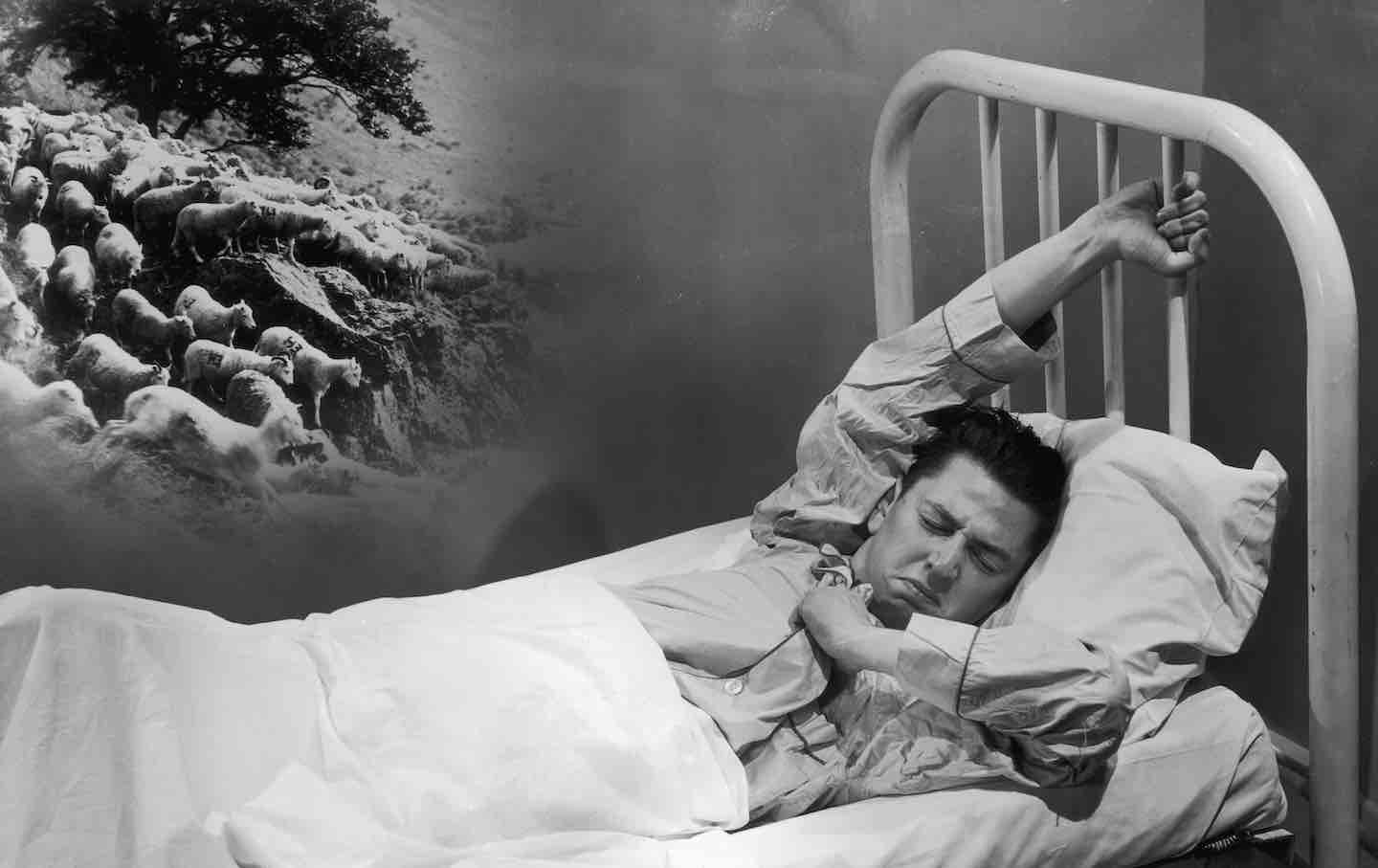
A French writer’s memoir of her insomnia tries to understand how central sleep is to cultural and intellectual history.
Books & the Arts
/
Alyse Burnside
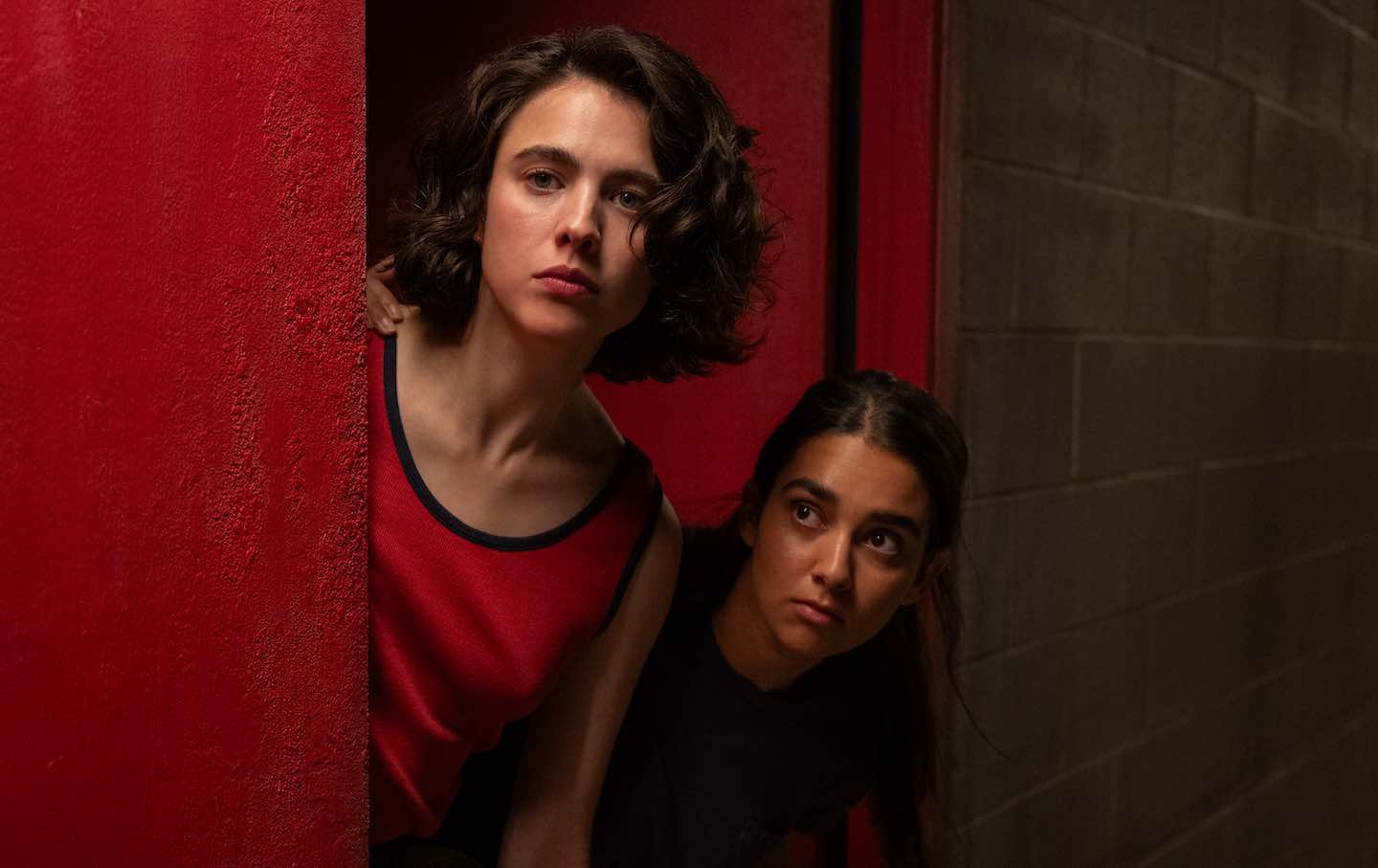
Ethan Coen’s horny homage to American film history’s many strains of queer comedy highlights the collaborative aspect inherent in his project as a director.
Books & the Arts
/
Vikram Murthi
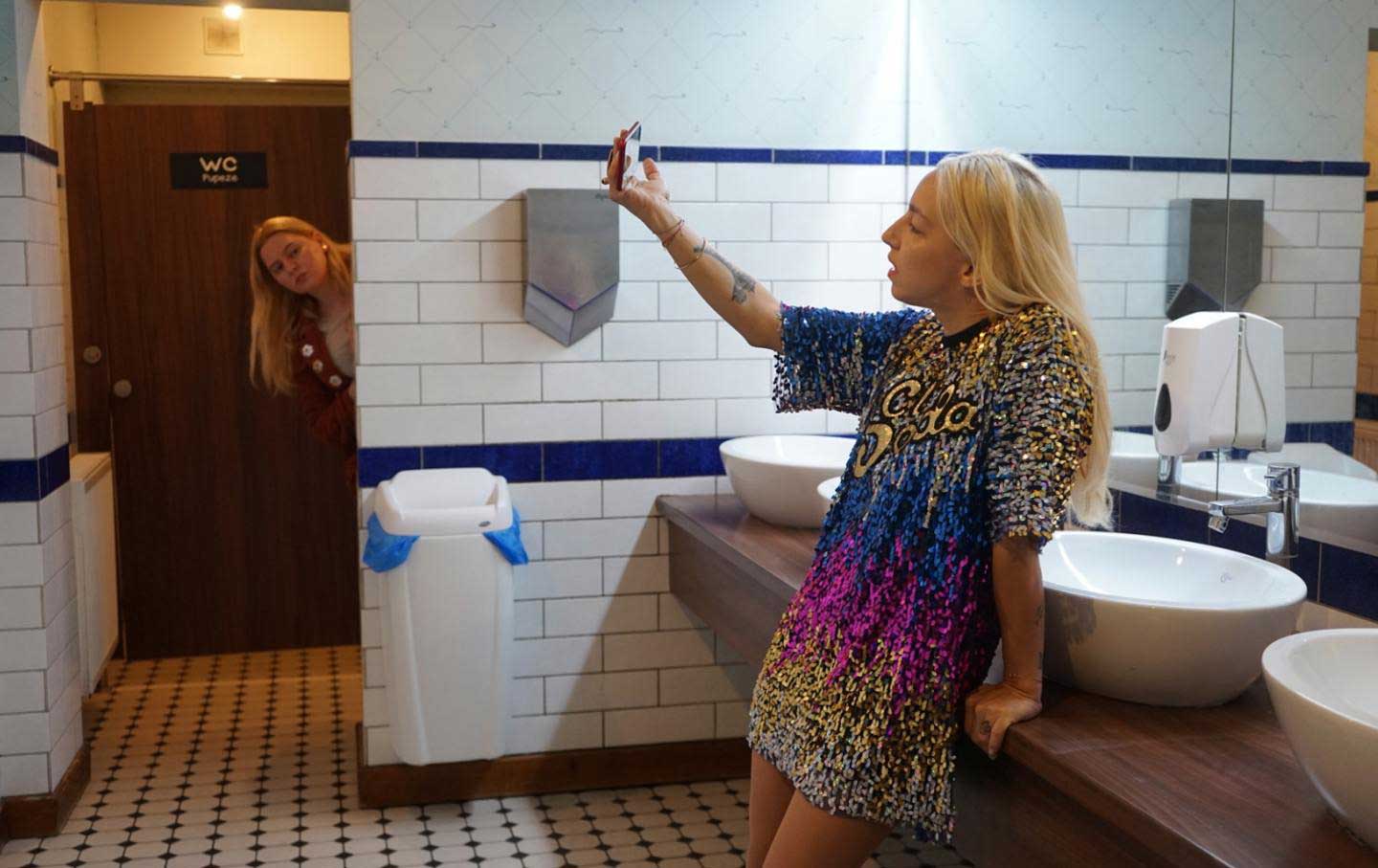
His latest, Do Not Expect Too Much From the End of the World, is a a digressive and transgressive movie of ideas about the social-media age.
Books & the Arts
/
J. Hoberman
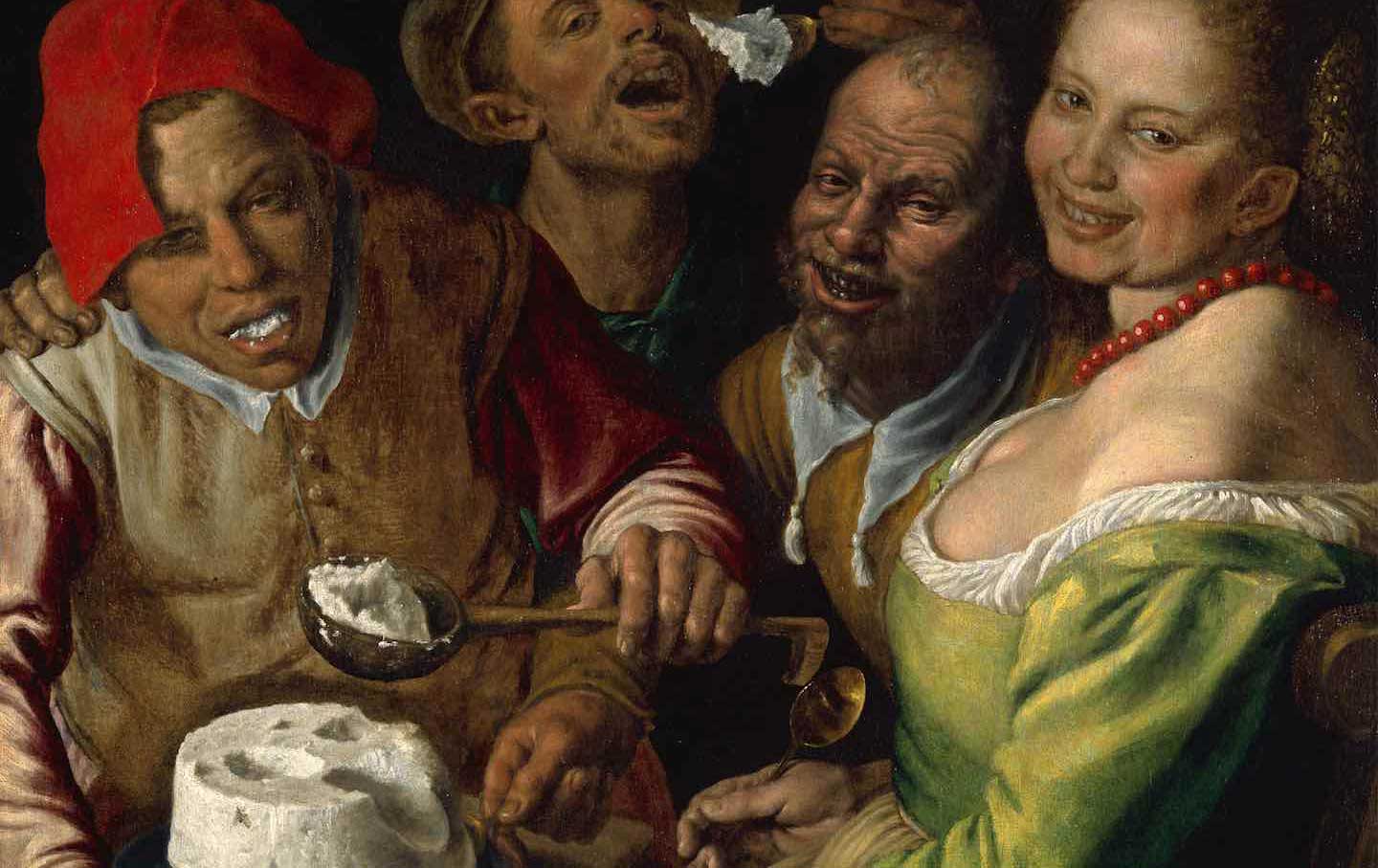
Set between the 16th and 22nd centuries, The Annual Banquet of the Gravediggers’ Guild is a work of political comedy, fixated on class, climate, food, wine, and the afterlife.
Books & the Arts
/
Dustin Illingworth
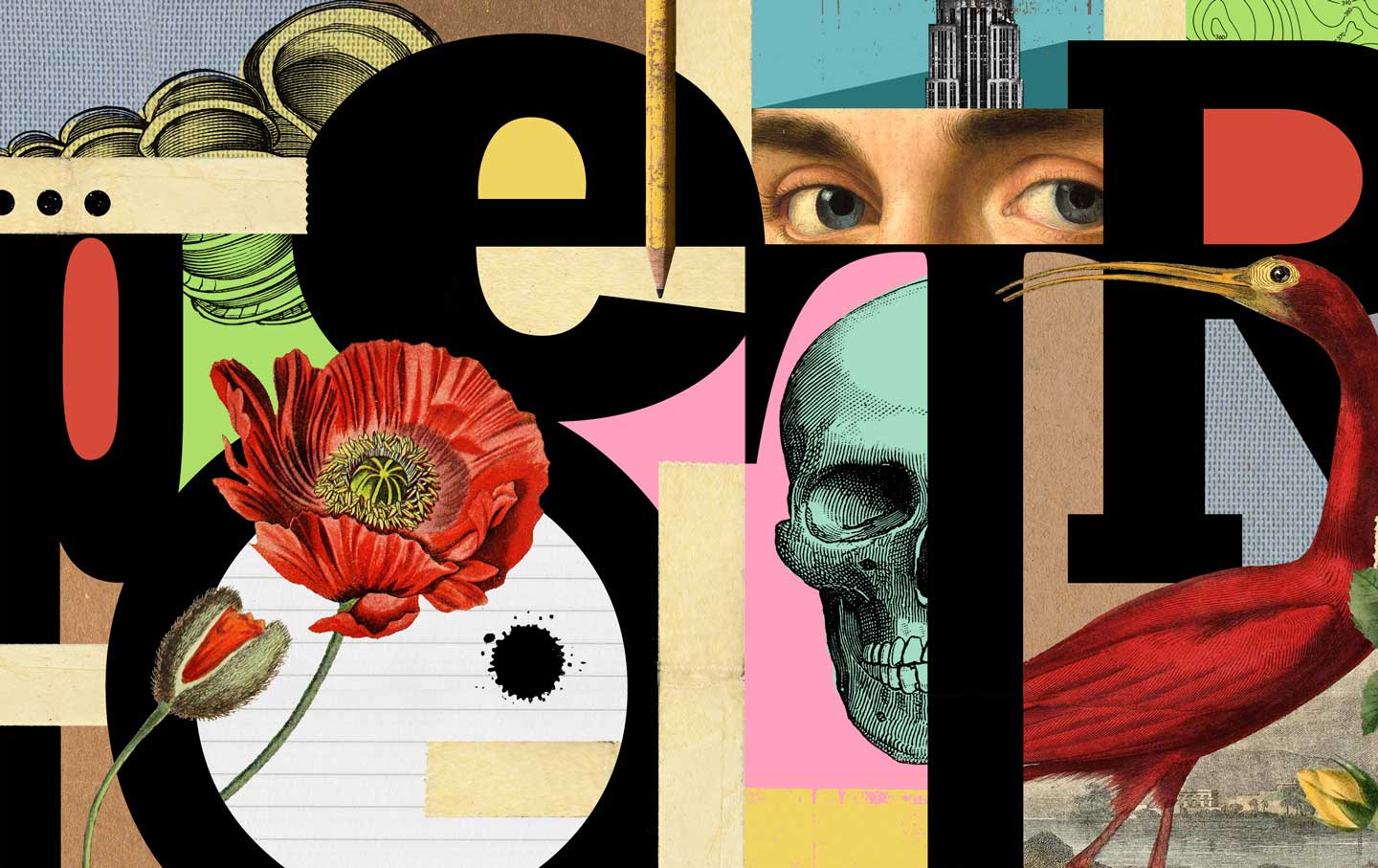
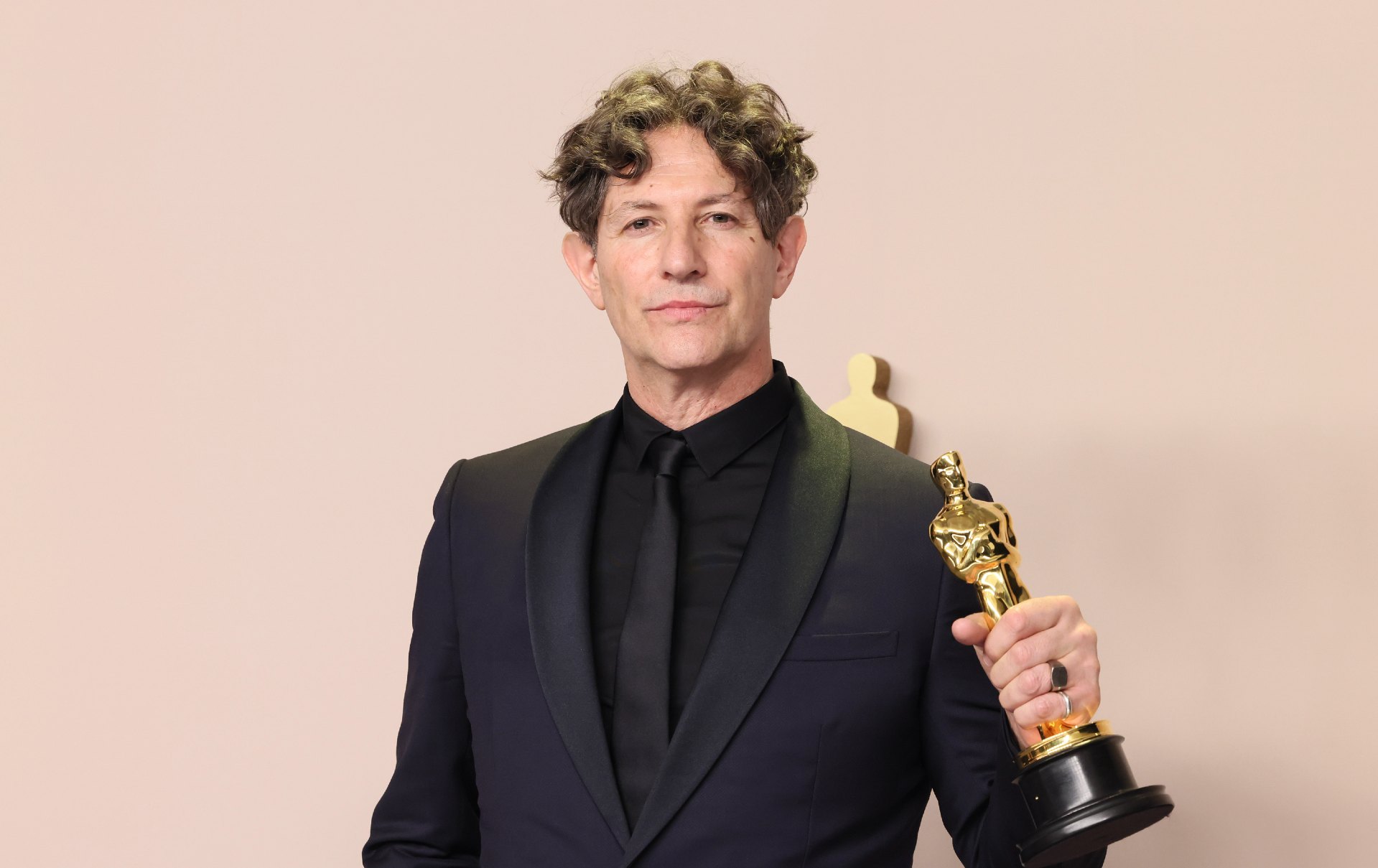
The Zone of Interest was never a film of purely historical relevance. But when the director made that obvious in his Oscar acceptance, supporters of Israel’s war in Gaza erupted.
David Klion

